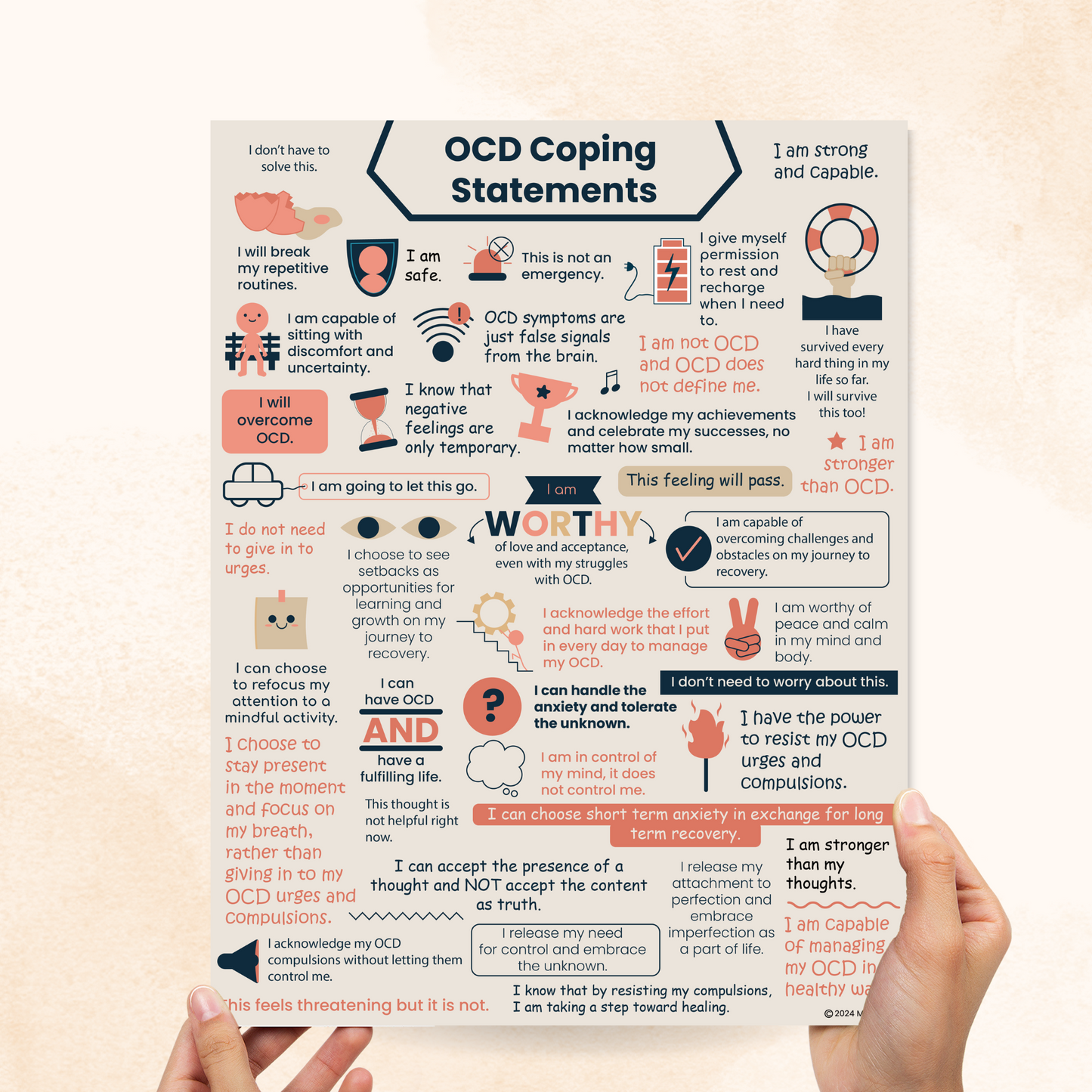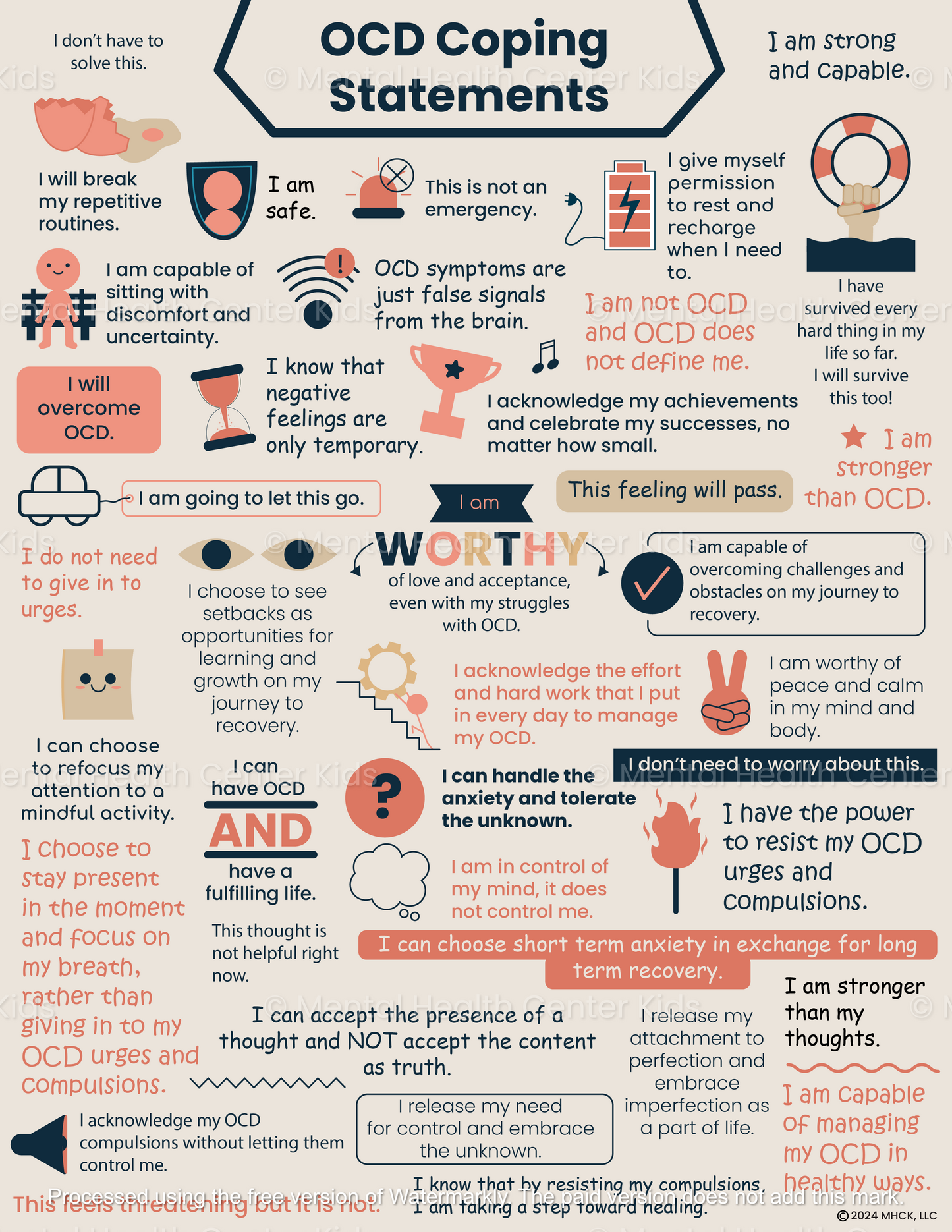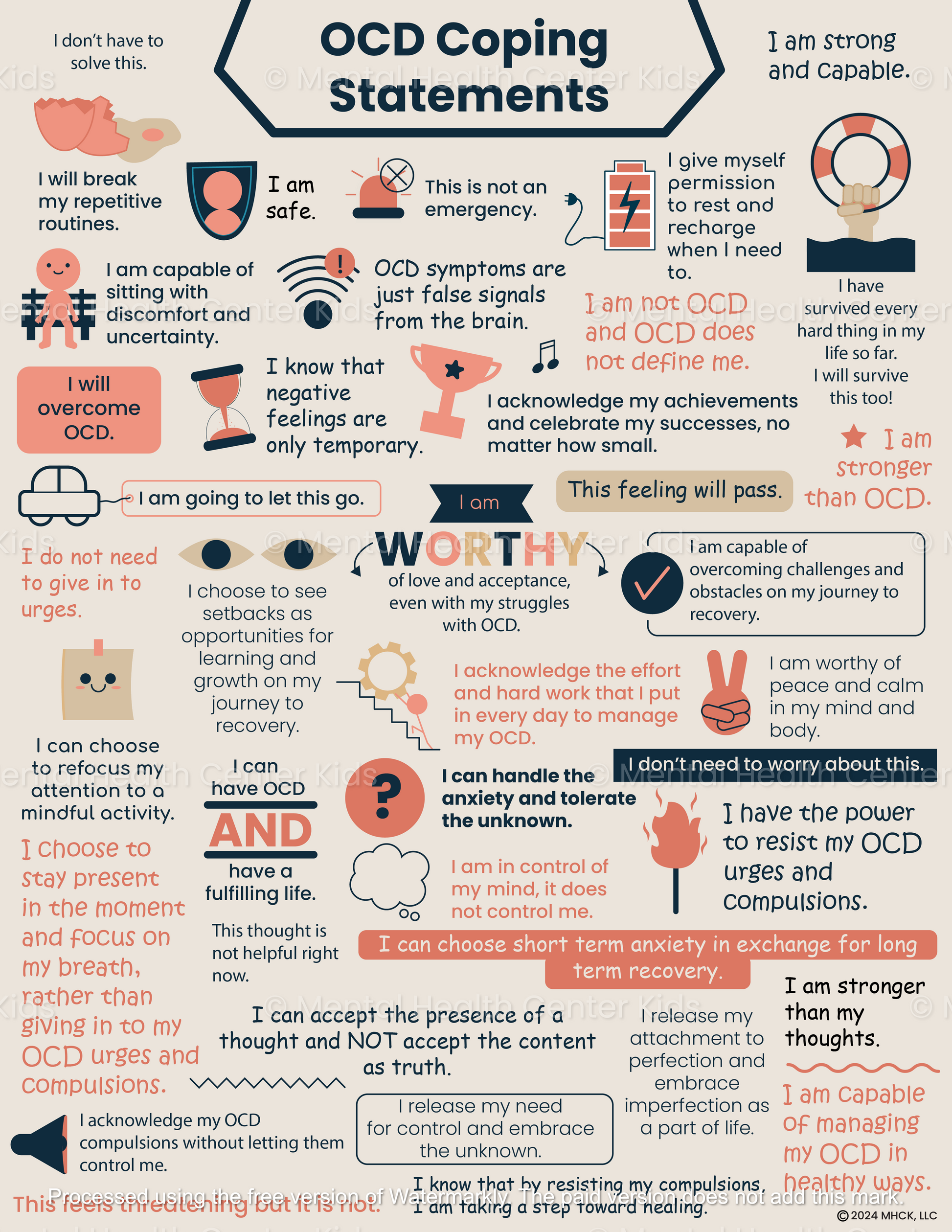OCD Coping Statements Handout


Coping statements for OCD are affirmations that promote positivity and resilience in managing persistent worries and repetitive actions associated with the condition. These statements allow clients to feel more in control when they are overwhelmed by intrusive thoughts and the urge to perform rituals, such as repetitive hand washing or arranging items.
The OCD Coping Statements Handout helps clients develop more positive self-talk to shift their mindset. It features over 30 uplifting statements that challenge negative thoughts. Some examples include “I don’t have to solve this” and “I am going to let this go.”
Kids and teens using this handout will be reminded of their ability to confront fears so they can lead fulfilling lives despite the difficulties posed by OCD. Parents and teachers can enhance support by collaboratively creating a "bravery jar." Together, they can write down their favorite coping statements on paper and select one daily to apply to challenging situations.
For additional support with managing OCD check out our handouts on OCD Coping Skills and Exposure and Response Prevention Therapy (ERP).
*This item is an instant digital download. A link to download your files will be emailed to you once payment is confirmed.
Want more resources like this? Check out our full catalog of anxiety worksheets and handouts.
References:
- DeGangi, G. A. (2017). Obsessive–compulsive disorder: How to build flexibility and budge compulsive thinking. Pediatric Disorders of Regulation in Affect and Behavior, 273-308. https://doi.org/10.1016/b978-0-12-810423-1.00007-6
- Dimala, C. P., Hakim, A. R., & Salsabila, I. M. (2023). Effectiveness of positive self talk to increasing student’s self-confidence. Edutran of Psychology and Behavior, 1(1), 21-27. https://doi.org/10.59805/epb.v1i1.36
- Hatzigeorgiadis, A., Zourbanos, N., Mpoumpaki, S., & Theodorakis, Y. (2009). Mechanisms underlying the self-talk–performance relationship: The effects of motivational self-talk on self-confidence and anxiety. Psychology of Sport and Exercise, 10(1), 186-192. https://doi.org/10.1016/j.psychsport.2008.07.009
- Nazeer, A., Latif, F., Mondal, A., Azeem, M. W., & Greydanus, D. E. (2020). Obsessive-compulsive disorder in children and adolescents: Epidemiology, diagnosis and management. Translational Pediatrics, 9(S1), S76-S93. https://doi.org/10.21037/tp.2019.10.02
- Instant digital download
- File: PDF
- Size: 8.5" x 11"



